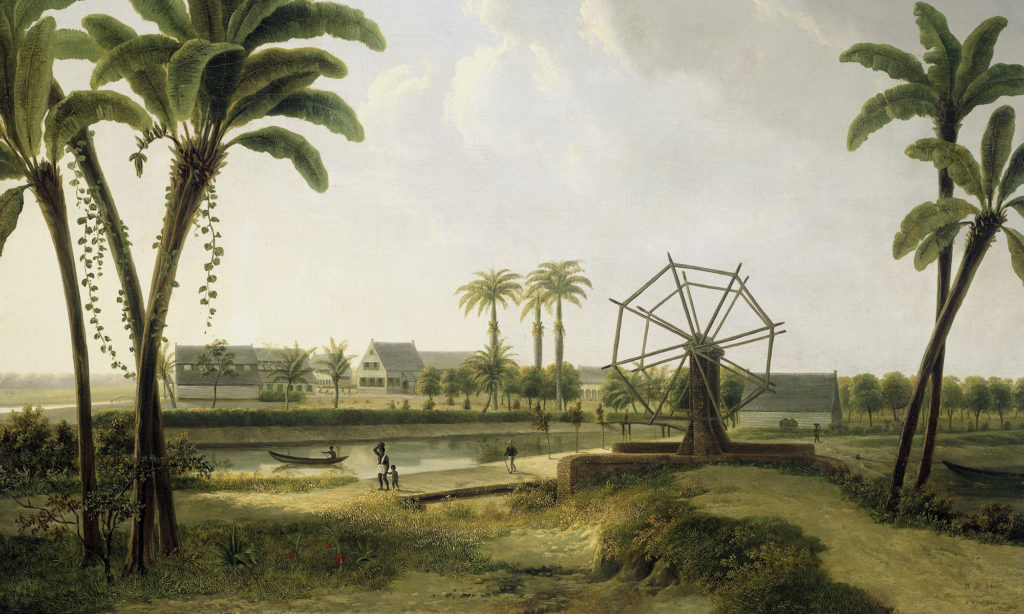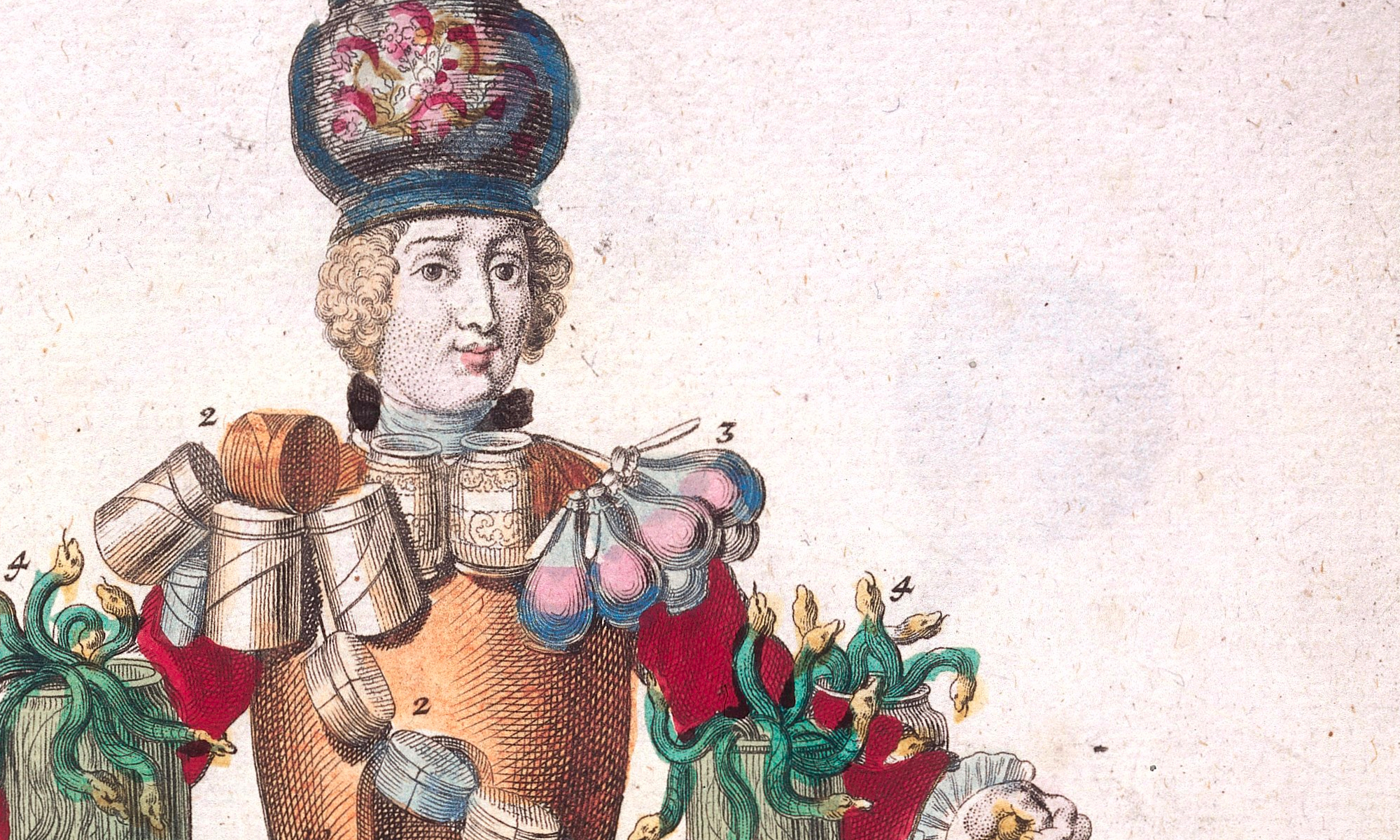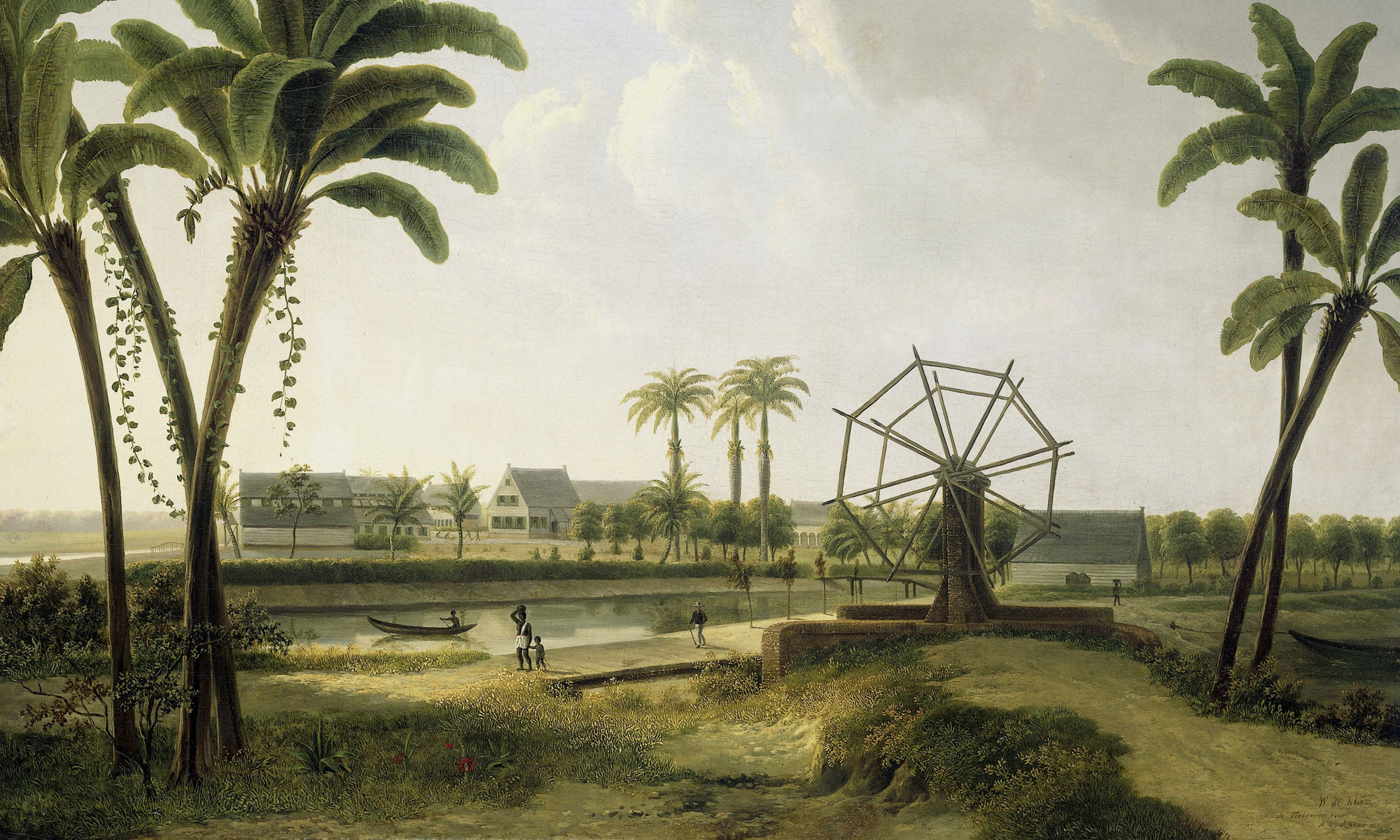Intoxicating Spaces: Global and Comparative Perspectives
A free online conference organised by the HERA research project Intoxicating Spaces: The Impact of New Intoxicants on Urban Spaces in Europe, 1600–1850, to be held live via Zoom. Videos available below.
Monday 19–Wednesday 21 July 2021
Intoxicants are a prevailing and even defining feature of the modern world. Since the sixteenth century, cacao, caffeines, opiates, sugar, tobacco, and pharmaceuticals joined alcohols in transforming dietary and social habits, and becoming mainstays of modern global economies and nation states. The means by which these commodities have been produced, transported, and consumed, often within the exploitative contexts of colonialism and empire, is inherently and sometimes violently spatial: from the plantations and other agricultural settings where they were cultivated, to the international networks and systems through which they were trafficked, to the built, al fresco, and temporary environments in which they were retailed, exchanged, and enjoyed. This conference offers new perspectives on the relationship between intoxicants and spaces – social, material, and conceptual – since the sixteenth century, and on an international scale. It will explore the spatial dimensions and dynamics of production, traffic, and consumption; how transplantations and flows of intoxicants can help us understand the nature of the global; and how international comparisons can illuminate practices and experiences within local, regional, national, and continental contexts.
Monday 19 July
NB all timings BST (British Summer Time)
1:45–2pm BST: Welcome & Introduction
2–3:30pm BST: Parallel Sessions
Session 1: Opium
Chair: Stephen Snelders
Devyani Gupta (Jindal Global University)
Opium’s Empire: Circulatory Networks and Imperial Geography in the Nineteenth Century
Jonathan Jones (Virginia Military Institute)
Opium Slavery: US Civil War Veterans and the Problem of Addiction in Modernizing America
Shaul Marmari (Leibniz Institute for Jewish History and Culture)
Intoxicating Diasporas: Jewish Opium and Coffee Networks in the Indian Ocean
Session 2: Objects & Architectures
Chair: Gabrielle Robilliard
Anna Fielding (Manchester Metropolitan University/The National Trust)
A Table in Cheshire: Sugar, Spice, and Tales from Far-Flung Seas
Magnus Copps (Museum of London Archaeology)
‘Importers of Foreign Spiritous Liquors’: Colonial Commodities in an Early Nineteenth-Century London Public House
Lucas Richert (UW-Madison)
Pharmacies as ‘Pleasure Meccas’: Addiction, Architecture, and American Capitalism
3:30–4pm BST: Intoxicant Break
4–5:30pm BST: Parallel Sessions
Session 3: Intoxicants in Circulation
Chair: Leos Müller
Anistatia Miller (University of Bristol)
Revisiting Early Modern Gin
Tyler Rainford (University of Bristol)
‘The Best Liquor That End of the Town Could Afford Us’: Locating Punch in Eighteenth-Century London
Lauren Working (University of Oxford)
Bacchus’ New Muse: Wine, Tobacco, and the ‘Intoxicating Enchantments’ of Early Stuart Colonialism
Session 4: Discourse & Regulation
Chair: James Brown
Jamie Banks (University of Leicester) & Deborah Toner (University of Leicester)
Alcohol and Race at the International Anti-Alcohol Congresses, 1885–1939
Chelsea Davis (George Washington University)
The ‘Civilizing’ Discourse on Wine: Britain’s Imperial Project in the Cape of Good Hope and South Australia
Eva Ward (University of Strathclyde)
Cultures of Consumption, the Colonial State, and Prohibition in the American Philippines, 1913–1933
Tuesday 20 July
2–3:30pm BST: Parallel Sessions
Session 5: Intoxicating Geographies
Chair: Dagmar Freist
Natasha Bailey (University of Leicester)
Putting Maguey on the Map: The Cultural Geography of the Early Colonial Pulque Trade in Mexico
Gabriel Feltran (Federal University of São Carlos)
Following Stolen Cars and What’s Left of Them: On Inequalities and Violence in International Market Chains
Johan Mathew (Rutgers University)
Puff and Pull: Drug Use and Rickshaw Coolies in Indian Ocean Port Cities
Session 6: Datura, Ecstasy, Poppers
Chair: Toine Pieters
Peder Clark (University of Liverpool)
Everybody in the Place: Ecstasy, Raves, and Heterotopic Spaces
Ben Mechen (King’s College London)
Feel the Rush: Poppers, Policing, and Queer Futurity in Eighties London
Anil Paralkar (Ruprecht-Karls-Universität Heidelberg)
Intoxicating Alterities: Travelling Narratives about Datura Consumption between India and Europe in the Sixteenth and Seventeenth Centuries
3:30–4pm BST: Intoxicant Break
4–5pm BST: Parallel Sessions
Session 7: Sugar
Chair: Gabrielle Robilliard
Michael Bennett (University of Sheffield)
Caribbean Plantation Economies as Colonial Models
Marissa Nicosia (Pennsylvania State University)
Locating Ice Cream in Seventeenth-Century London
Session 8: Cannabis
Chair: Stephen Snelders
Neil Carrier (University of Bristol) & Gernot Klantschnig (University of Bristol)
(Il)Legalising Spaces: Cannabis, Space, and the Law in African Cultures of Cannabis Consumption
Thembisa Waetjen (University of Johannesburg)
Cannabis Smoking in Colonial Geographies: C. J. G. Bourhill, J. A. Mitchell, and South Africa
7-8pm BST: A virtual tour of London’s early modern coffeehouses, with tastings of eighteenth-century style coffee, led by historian and broadcaster Dr Matthew Green (creator of Unreal City Audio, and author of London: A Travel Guide Through Time).
Wednesday 21 July
2–3:30pm BST: Parallel Sessions
Session 9: Coffee Cultures
Chair: Hanna Hodacs
Bhaswati Bhattacharya (University of Göttingen)
The Indian Coffeehouse: The Legacy of a Space in Urban Socialisation
Robert Moretti (University of Salzburg)
Global Goods in Rural Towns, or: How Coffee Shaped Societies in Graz/Styria
Kristin Plys (University of Toronto Mississauga)
Art and Politics in Lahore’s Café Culture during the Zia Military Dictatorship, 1977–1988
Session 10: Intoxicants & Authority
Chair: Phil Withington
Ebru Boyar (Middle East Technical University)
‘The Scent of Wine’: Chasing Drunks in Court in Early Modern Istanbul
Lila O’Leary Chambers (New York University)
‘A Riotous and Tumultuous Meeting’: Alcohol and the Contested Politics of Space in the Early Leeward Islands
Nat Cutter (University of Melbourne)
Vine-Bibbers, Cockle-Warmers, and Drunken Raving Beasts: Alcohol, Cultural Exchange, and Anglo-Maghrebi Diplomacy in the Ottoman Maghreb, 1679–1700
3:30–4pm BST: Intoxicant Break
4–5:30pm BST: Parallel Sessions
Session 11: Tobacco
Chair: Phil Withington
Sarah Inskip (University of Leicester)
Tracing Tobacco: Bioarchaeology and Tobacco Use in the Eighteenth-Nineteenth Century Netherlands
Michael Reeve (Bishop Grosseteste University)
‘The Only Comfort’: Wartime Tobacco Provision and Notions of Soldierly Welfare in Twentieth-Century Britain
Matthew P. Romaniello (Weber State University)
The Bad Sort? G. N. Teplov’s Plan for Ukrainian Tobacco in the Eighteenth Century
Session 12: European Drinking Spaces
Chair: James Brown
Dorota Dias-Lewandowska (Polish Academy of Sciences) & Pam Lock (University of Bristol)
A Woman’s Place is in the Home? Seeking the Unheard Voices of Drinking Women in Polish and British Cultures
Alexandr Gorokhovskiy (Utrecht University)
‘Naley enim Infunde significat’: Sixteenth-Century Moscow’s Drinking Quarter and its German Dwellers
Jenni Lares (Tampere University)
House, Home, and Tavern: Places of Drinking in Seventeenth-Century Finland
5:30–5:45pm BST: Intoxicant Break
5:45–6pm BST: Wrap-Up and Farewell

Featured Image
An idealised view of a Dutch coffee plantation in Suriname, via Rijksmuseum (CC0 1.0)

